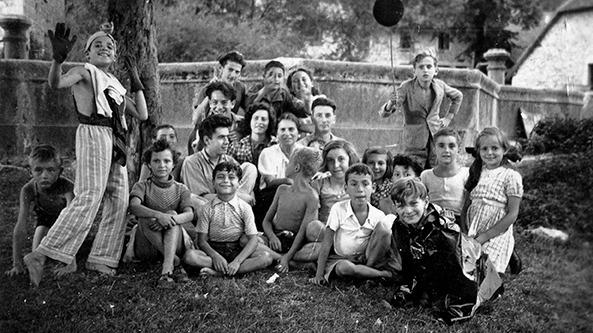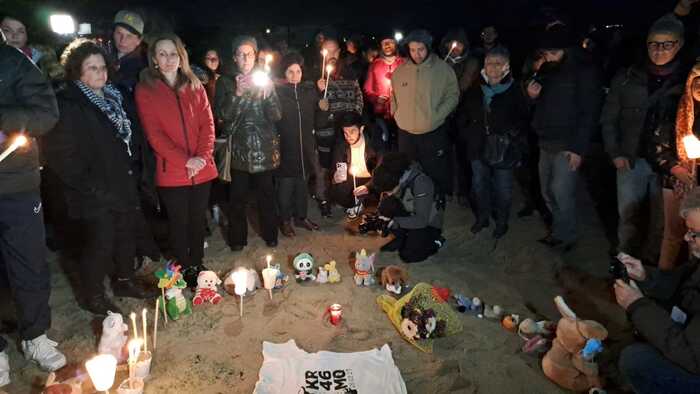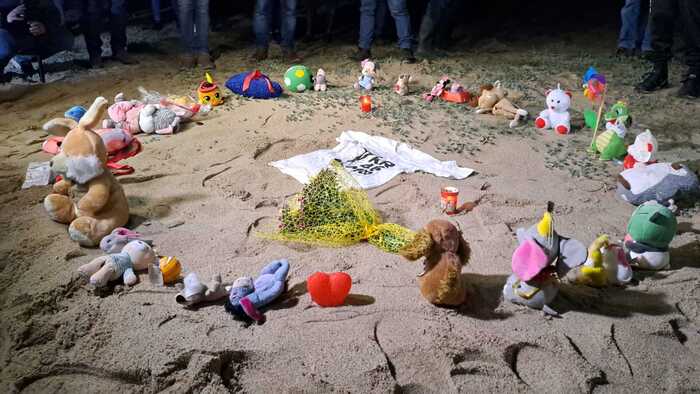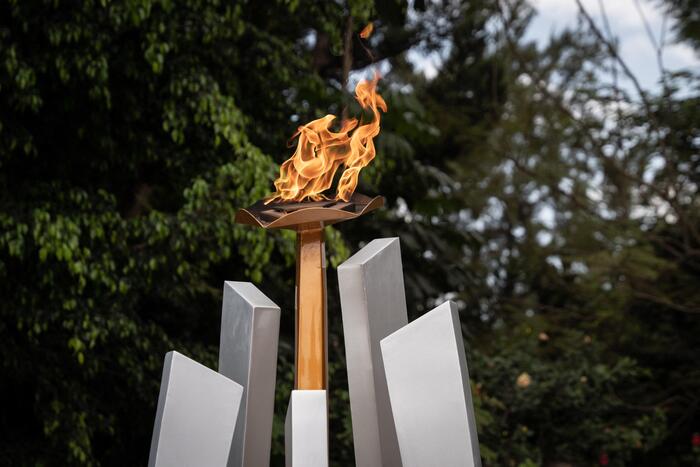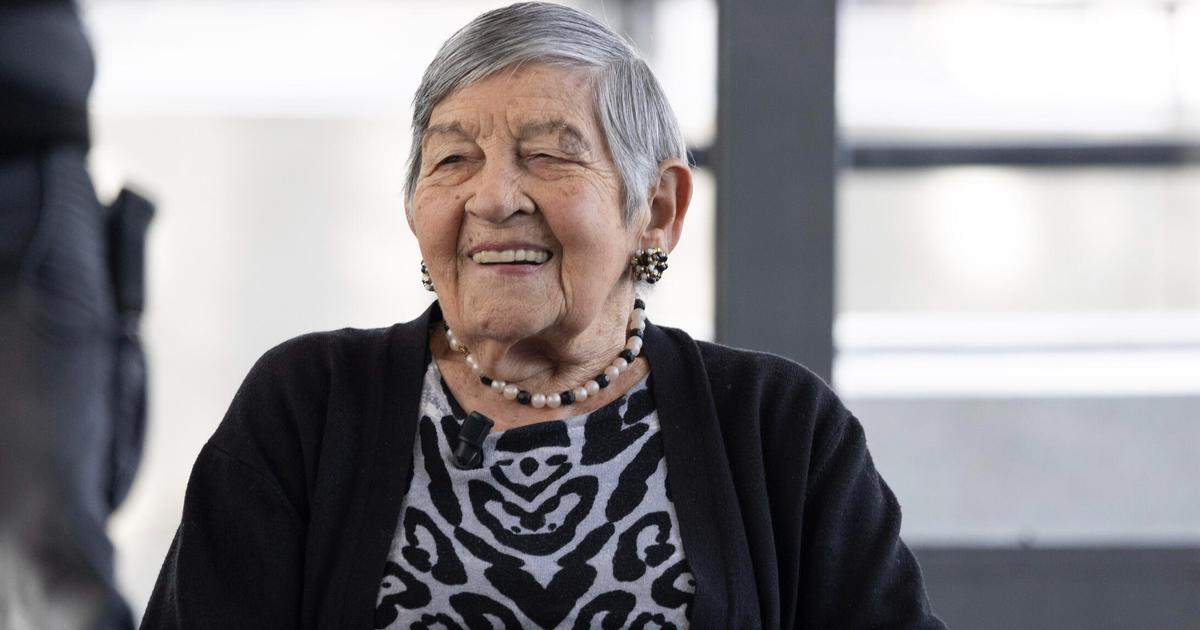AreaRead the video transcript expand here
Esther Bejarano:
“Everything is in my head. I see every time, I always see what we have experienced. Yes, very, very bad things.”
How do you describe real horror, absolute horror?
Esther Bejarano tries.
She tells her incredible story over and over again.
During World War II, the National Socialists brought the Jewess to Auschwitz.
Today she is committed to ensuring that people do not forget what happened around 80 years ago.
She sensitizes, she warns.
She finds that particularly important these days.
Because the current development in Germany worries the 95-year-old enormously.
Esther Bejarano:
“Nazis are walking around on the street with some slogans that they made many, many years ago, yes, with Hitler salutes and all sorts of things. The AfD is marching with them. Yes, that's terrible. We have pegida. We have the NPD. For those who have experienced it, it's really... There's no way to describe how bad it is for us."
In 1943 Bejarano was sent to Auschwitz, where he was forced to do hard labour.
Prisoner number 41948. But she was lucky and was allowed to join a girls' orchestra.
She actually played the piano, but was supposed to play the accordion - and without further ado she taught herself the instrument.
It became her salvation.
As part of the orchestra, she enjoyed special protection and no longer had to work hard.
And yet Bejarano experienced her worst moments when she performed with the orchestra.
Especially when new transports arrived.
Esther Bejarano:
“And those trains that arrived on those tracks. Those people who were on those trains were all gassed. Those were trains that went to the gas chamber. And we stood there and had to play. And the people in there - I'm convinced - thought that where the music was playing, it couldn't be that bad. That was Nazi tactics. It was so hopeless. There was nothing you could do, absolutely nothing.”
And again and again she had to see what the guards in the concentration camp were capable of.
Esther Bejarano:
"For example, there was this terrible foreman Moll, who with his two dogs - he had such shepherd dogs - they were of course trained to bite people to death. Awful. He always walked the camp street with the dogs. And if he didn't like any of the faces of the people standing there, the prisoners, or if he was happy that he could set the dogs on them again, then he did. And the dogs mauled the people.”
Bejarano stayed in Auschwitz for about half a year and was then transferred to Ravensbrück.
In 1945 she was able to escape when the National Socialists had to evacuate the concentration camp because the Allies were getting closer and closer.
That was 75 years ago - and yet Bejarano thinks about the terrible pictures and the atrocities committed by the National Socialists every day.
Esther Bejarano:
“You can't get that out of your head. You have to, you have to understand that. It's very difficult for me to say the same thing over and over again. But I'm doing this because I know it's so terribly, terribly important. But it's no small thing for me. It's always difficult to tell a story.”
Nevertheless she does it.
Bejarano visits schools and holds readings.
And to this day she continues to focus on her greatest passion: music.
She saved her life in Auschwitz, now music is a good way to share her experiences: Bejarano is regularly on stage with the left-wing rap band Microphone Mafia and also conveys her clear message there: that history must never repeat itself .
She is all the more worried about the parallels between now and then - about the brutalization of the language that she observes among AfD officials.
And even when European countries refuse to take in refugees, she recognizes a pattern from back then.
Esther Bejarano:
“And I'll tell you: It was exactly the same back then. For example my sister, who fled to Switzerland. They sent her back to German soil and she was murdered. It's a bit different today, but it's similar."
It is now all the more important not to remain silent.
Bejarano would like to see more humanity and also demands that the federal government take countermeasures.
And she combines her demands with a clear warning.
Esther Bejarano:
"I know what will happen next if things go on like this and if you don't do anything about it. And if these right-wing parties get even stronger, then I'll be completely black. Because then exactly the same thing can happen that happened back then.”



